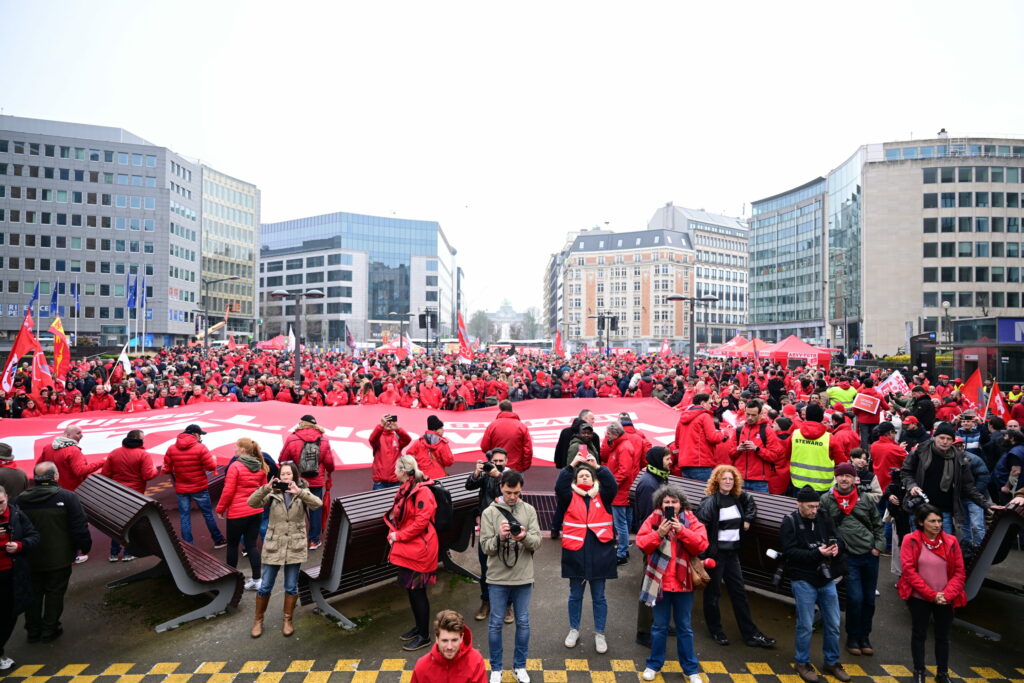Around 2,000 people gathered at the Schuman roundabout to protest against EU fiscal reforms on Tuesday morning.
This was lower than the turnout for the last anti-austerity march in December, when between 5,000 and 10,000 people gathered at Place Poelaert. There were less Belgian trade unions in attendance this time.
The demonstration on Tuesday coincided with a meeting between European economy and finance ministers, and was in protest of a Europe-wide "return to austerity". Trade unions argue that the fiscal reform bill, due to be voted on by the European Parliament in April, does not take social costs into account and will "inevitably impact a lot of people".
It is feared that pressure on Belgium to comply with the new rules will force the country to drastically cut social spending. Protesters gathered from 11:00 and rallied behind trade union FGTB and the slogan: "No way, we won't pay".

Credit: Belga
"We are here because we believe in a Europe that delivers for working people," ETUC Confederal Secretary Esther Lynch told the crowds. "Instead of strengthening tax justice, [EU national governments] are setting hard limits on spending. But working people refuse to pay the price of austerity again."
The text on the table
The reform in question aims to modernise the EU Stability and Growth Pact (SGP), which says a state’s budget deficit cannot exceed 3% of GDP and national debt cannot surpass 60% of GDP. The SGP has been criticised for being too stringent and therefore ineffective.

FGTB-ABVV chairman Thierry Bodson delivers a speech at the demonstration. Credit: Belga / Laurie Dieffembacq
The new text had intended to allow Member States to find ways to manage their own debt, but a clause introduced by "frugal" countries such as Germany seeks to impose a "minimum effort" on all Member States - hence the fear Belgium will be forced to cut spending in order to reach targets.
As it stands, Belgium's national budget deficit is on course for 5% of annual GDP in 2025 – significantly more than the 3% limit defined by the SGP.

